Preparing for your future: a conversation guide
Last updated 29 January 2025
Last updated 29 January 2025
Talking about older age and end of life plans can be very challenging. Some people find it difficult to have these types of conversations, but planning now means that you take the steps you need so you can live the life you want as you age.
This guide will help you address some of the challenges connected to discussing ageing and end of life plans. It is designed to help you plan for your older age in a way that is safe and right for you.
Future planning – or planning ahead for older age – is a four-step process:
Step one: Thinking about what you want your older age to be like.
Step two: Talking to people you trust about what you want for your older age.
Step three: Writing down what you want so that there is a record of your wishes and decisions.
Step four: Formalising your arrangements in legal documents.
This guide will help you with the first three steps of planning for your older age: thinking about, talking about, and writing down what you want for your future. In particular, it will help you work out the following aspects of your life:
As a fourth step, when you have finished the guide, we recommend you formalise your arrangements in legal documents, such as an Enduring Power of Attorney.
This guide is not a legal document and does not provide detailed legal information.
There are three parts to this guide – planning for everyday life in older age, planning how to manage your finances as you age, and planning for end of life healthcare.
You don’t have to do all of the parts, and you can do them in any order.
It usually takes at least 30 minutes to complete each part.
This guide is designed to help navigate conversations about planning for older age, and works best with a facilitator and a group of peers. For example, you could ask your community group, social group, or seniors group to do a session with you. But you can also use this guide with one person you trust or by yourself.
However you choose to use it, take your time! And remember, you can always change your answers if you change your mind. It’s important to check your answers every 1-2 years to see if they still reflect what you want your life in older age to look like.
If your community group, social group, or seniors group would like Justice Connect to run a facilitated workshop for your members, please contact our Seniors Law team at seniorslaw@justiceconnect.org.au.
You could ask your community group, social group, or seniors group to do a session with you.
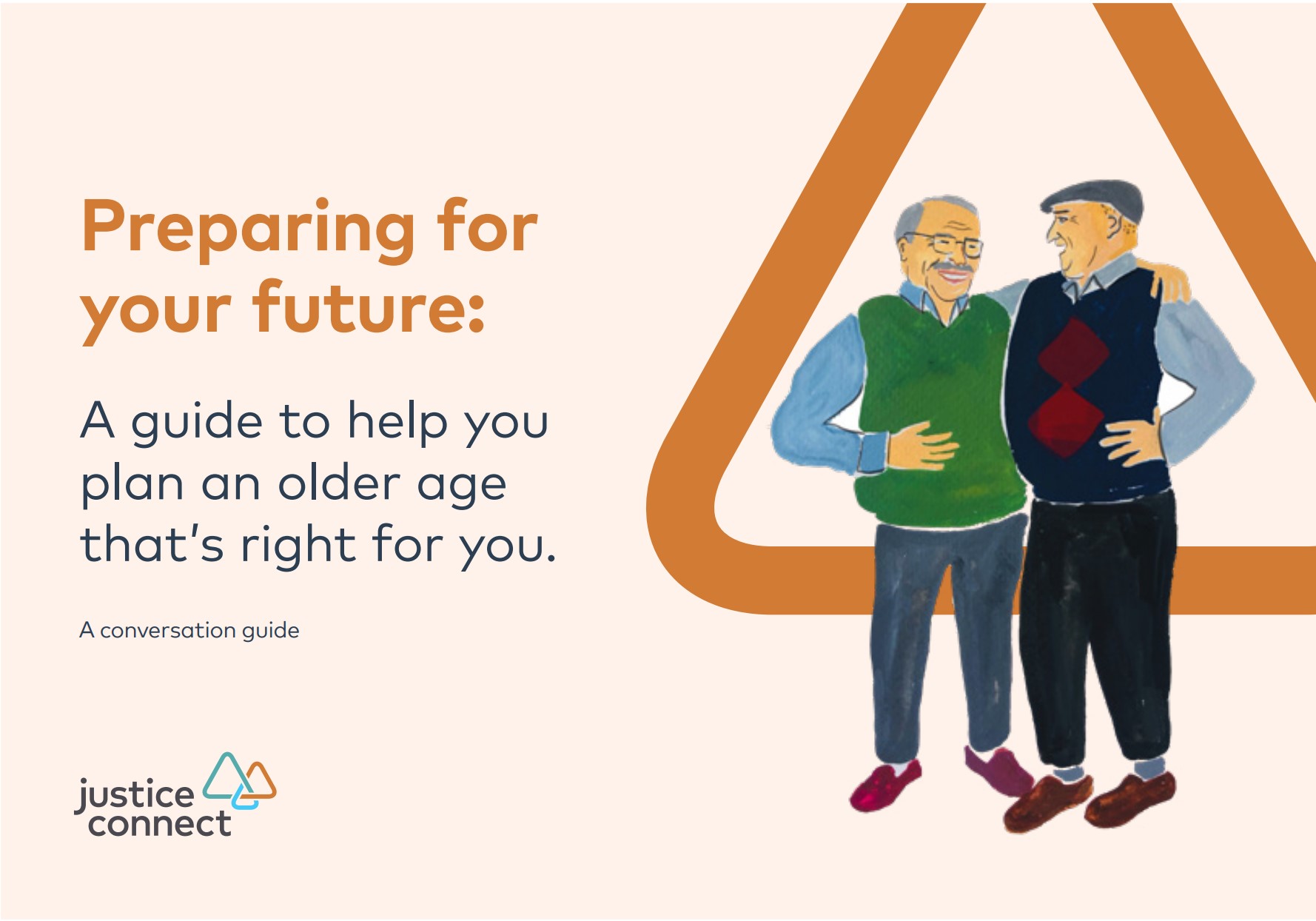
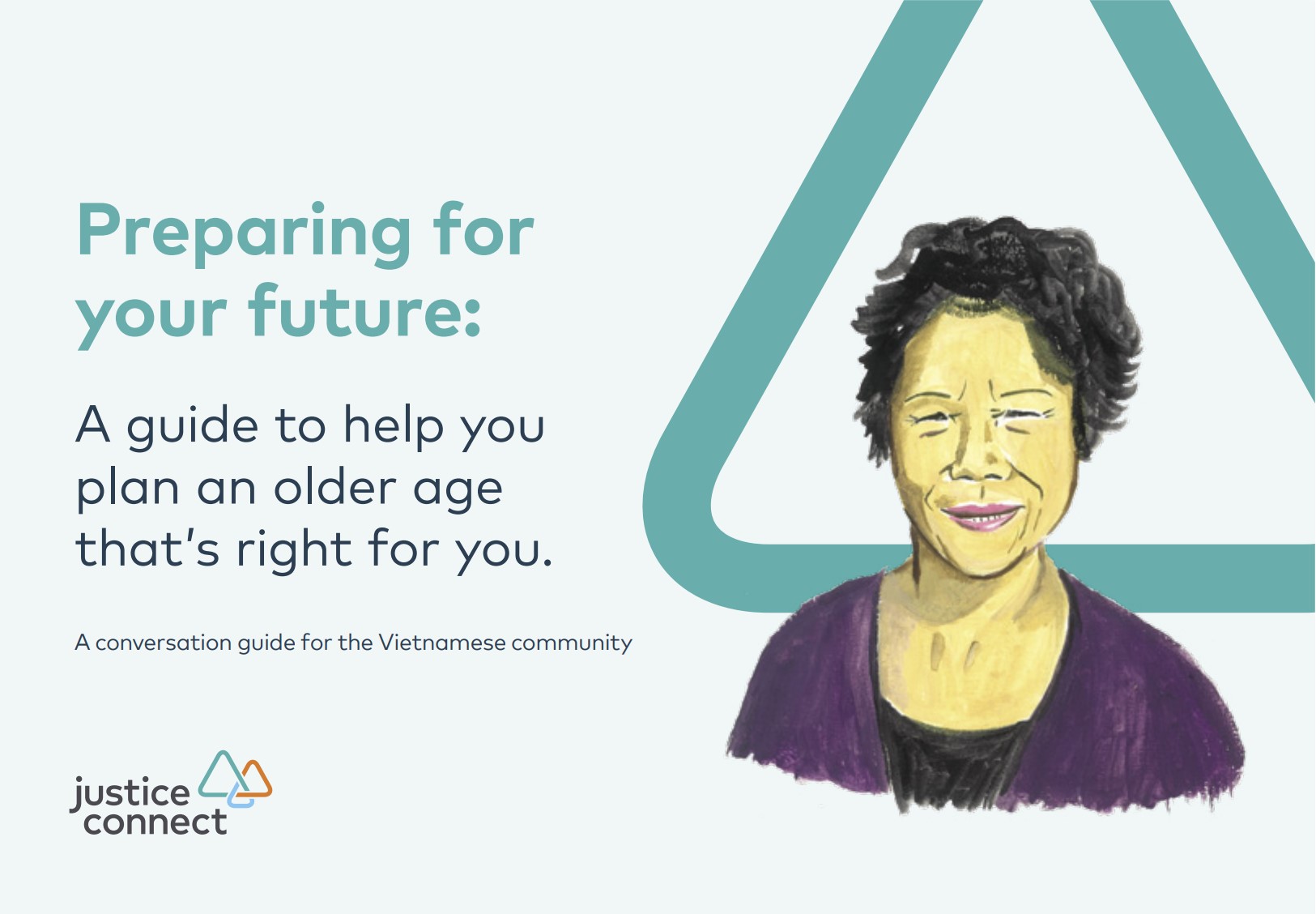
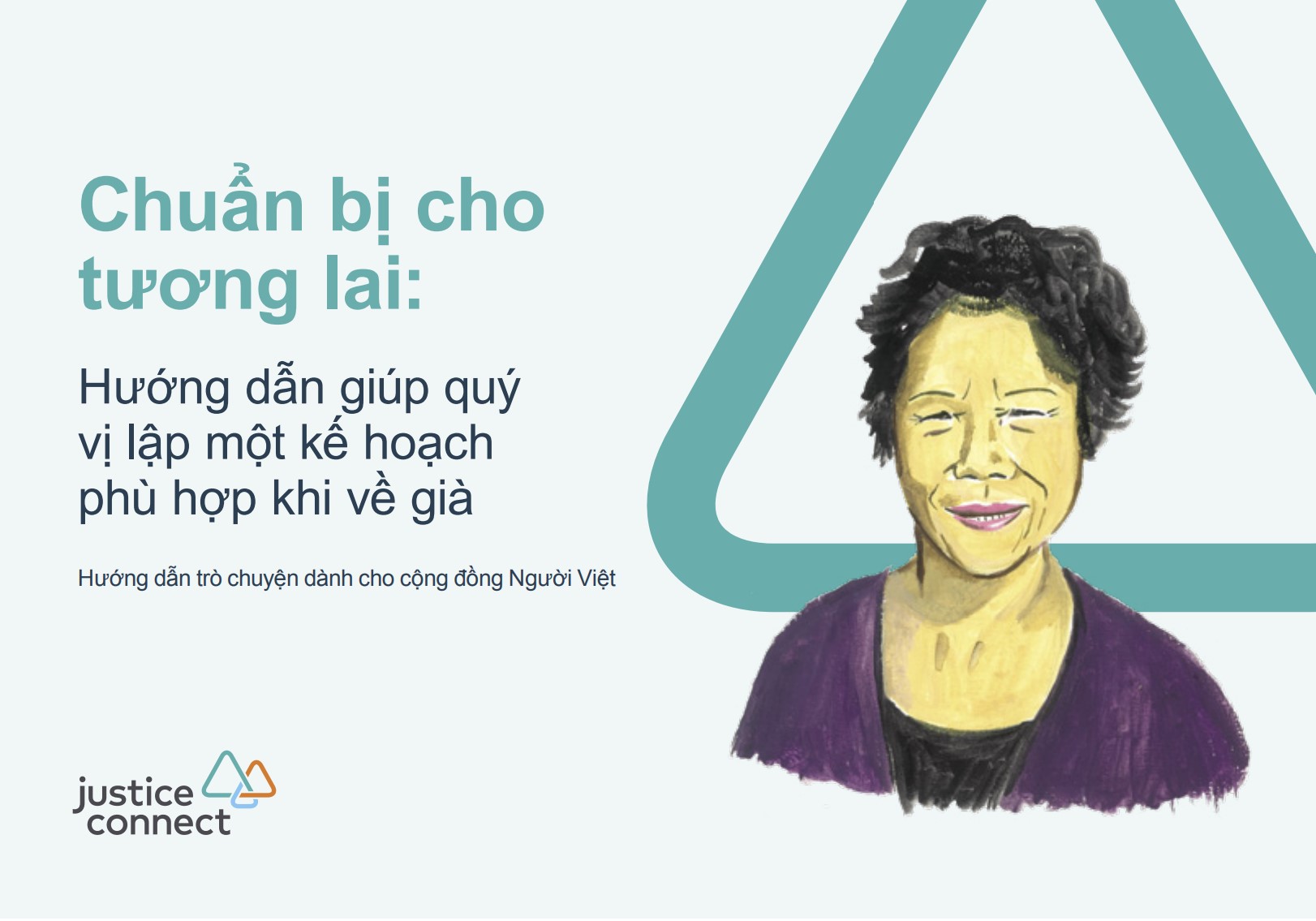
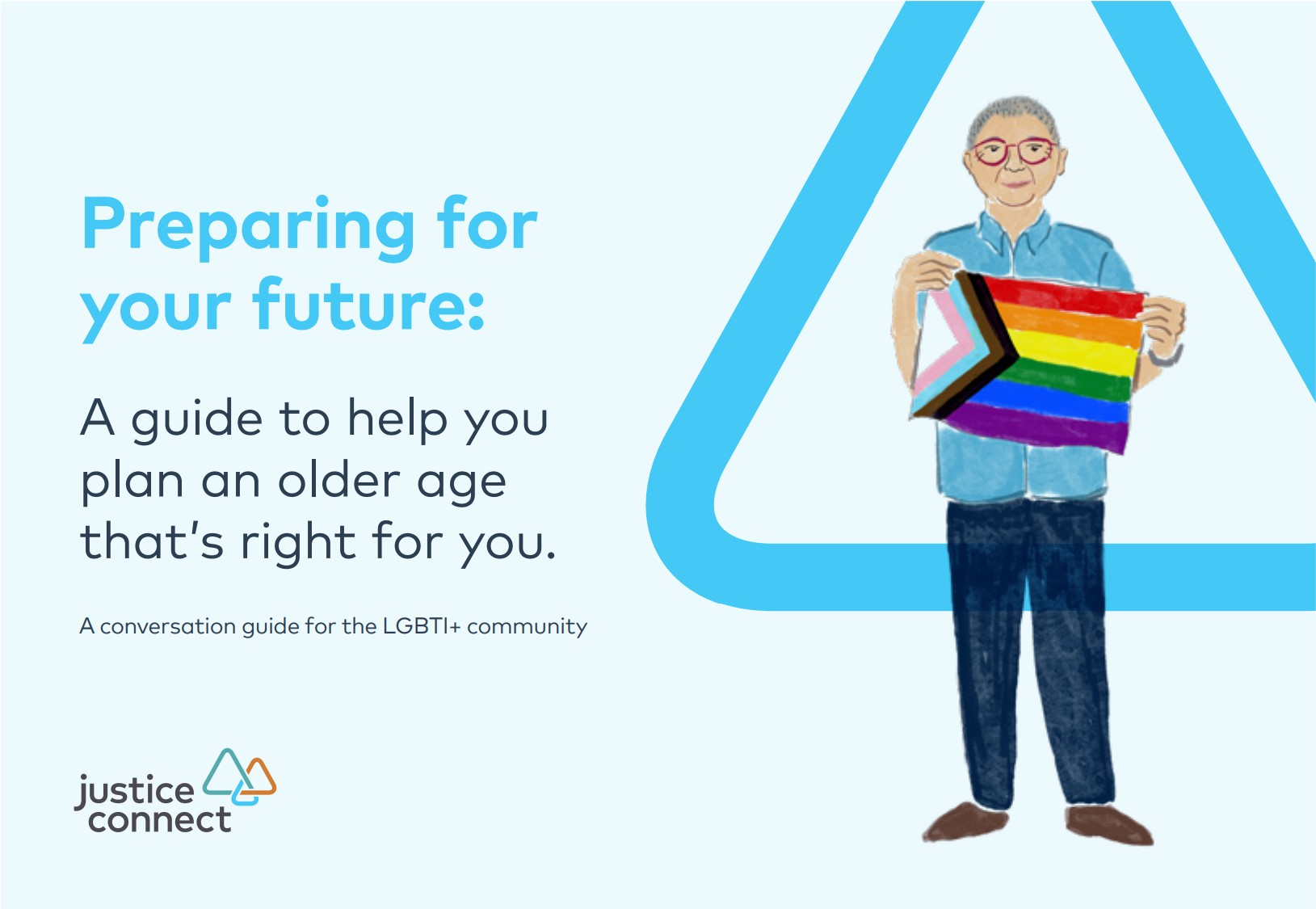


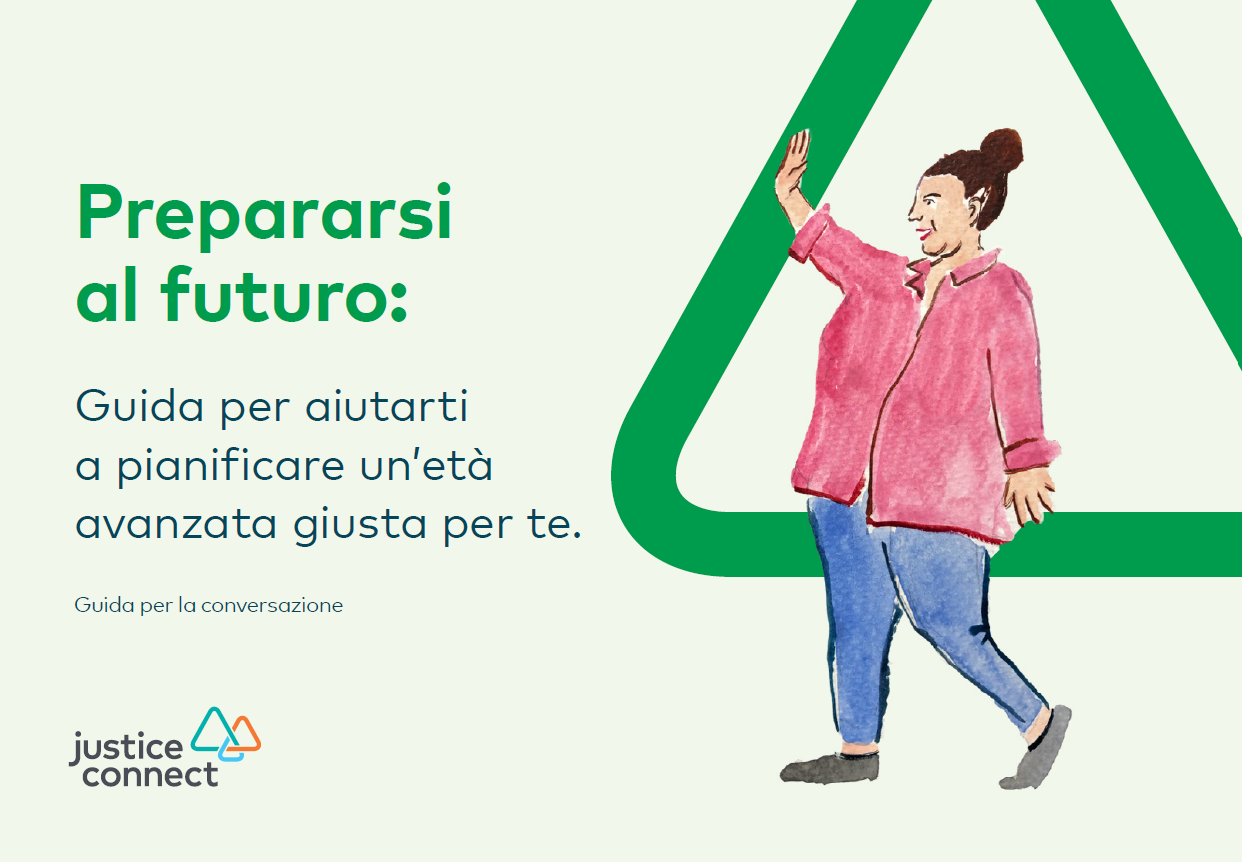
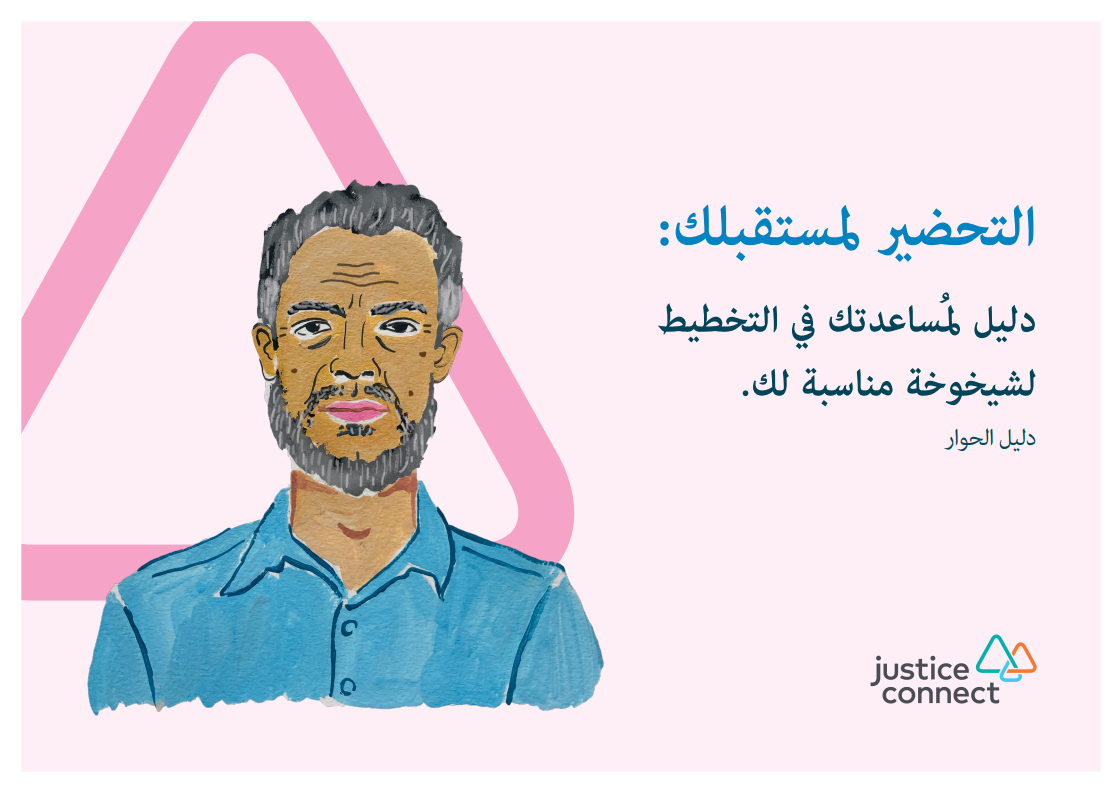
When you have finished the guide, we recommend you formalise your arrangements in legal documents, such as an Enduring Power of Attorney.
In Victoria, the Office of the Public Advocate can provide you with the necessary information and forms to complete an Enduring Power of Attorney, as well as information about appointing a Medical Treatment Decision Maker and copies of the relevant forms.
NSW residents will be able to find links to information and documents relevant to them under More self-help resources below.
This resource was last updated on 29 January 2025. This is legal information only and does not constitute legal advice. You should always contact a lawyer for advice specific to your situation. Please view our disclaimer for more information.